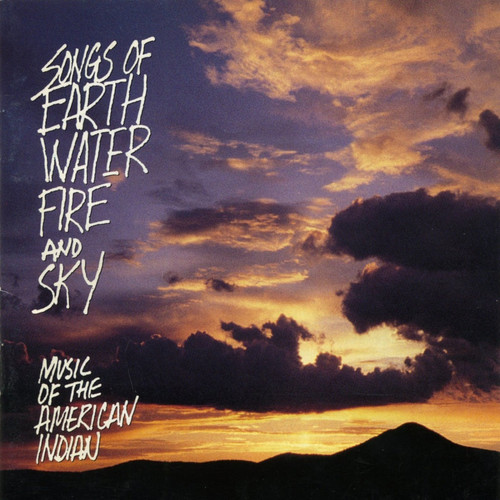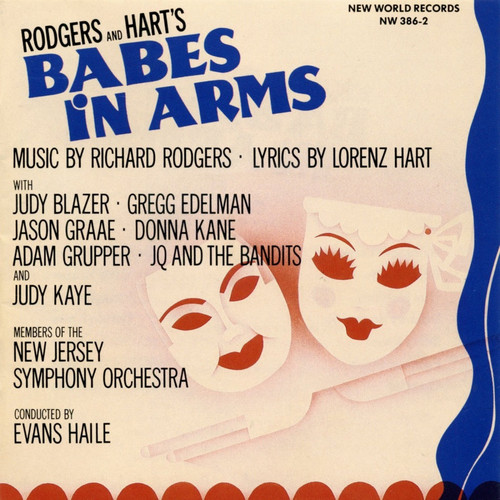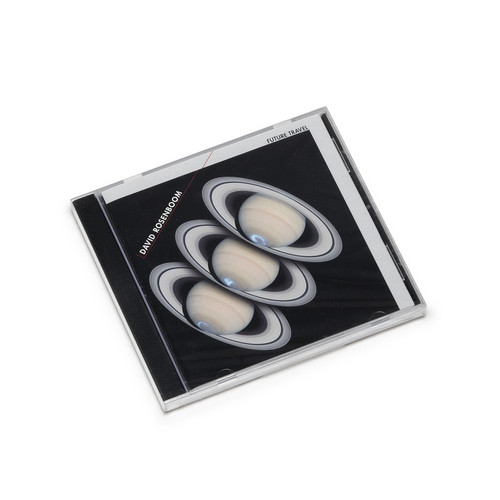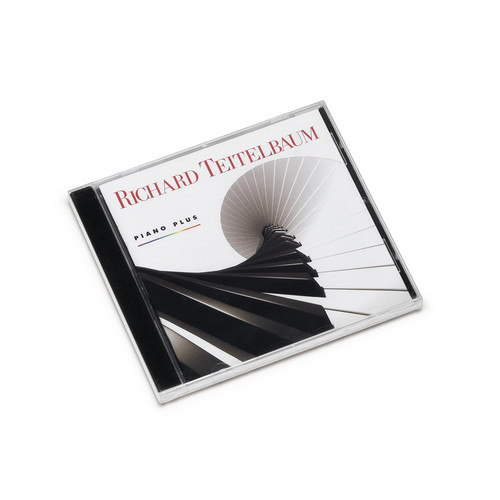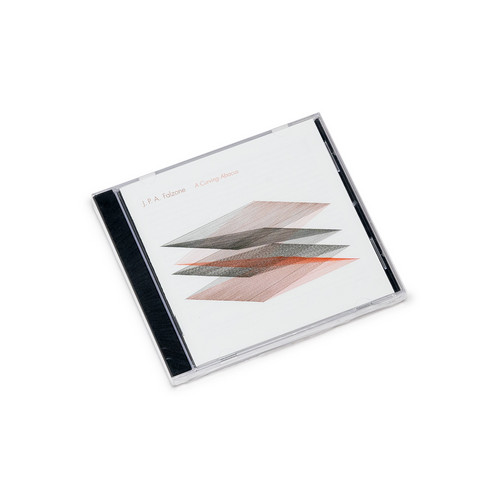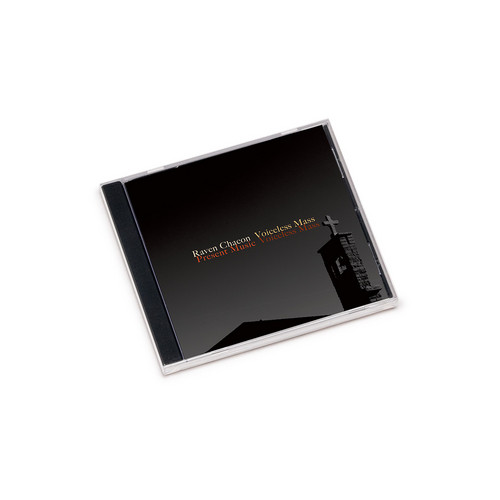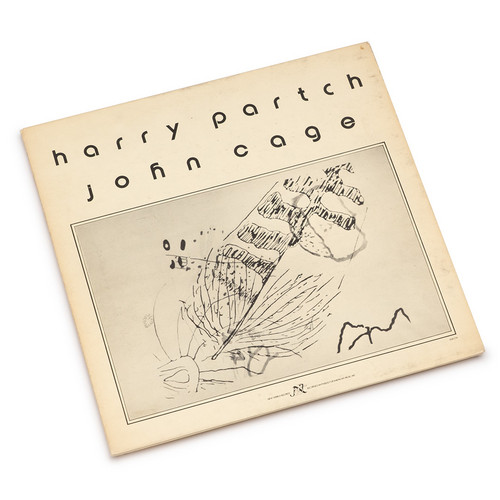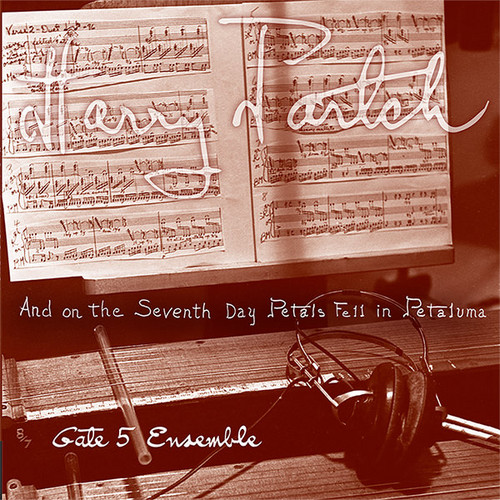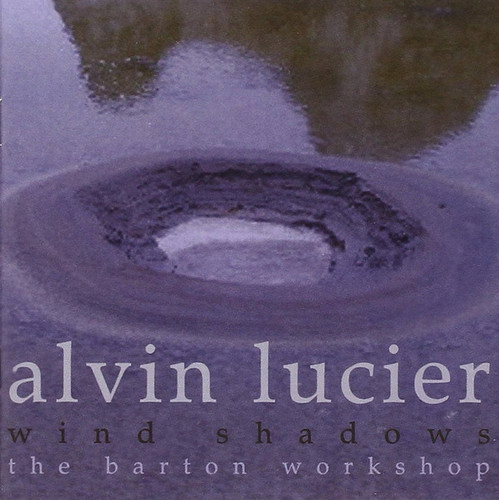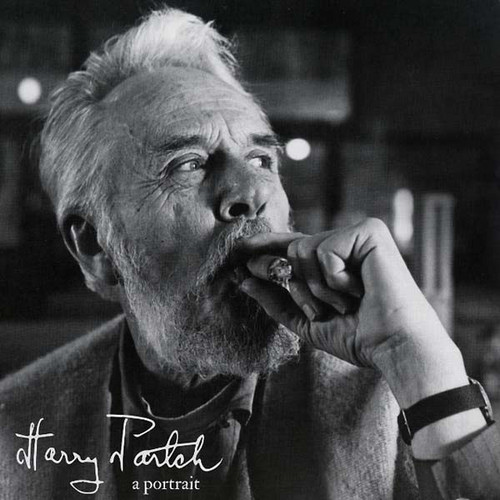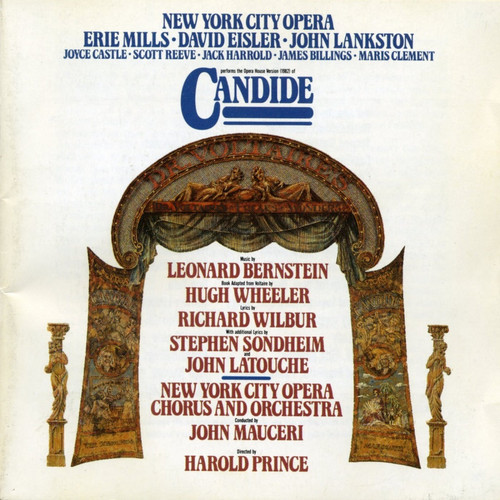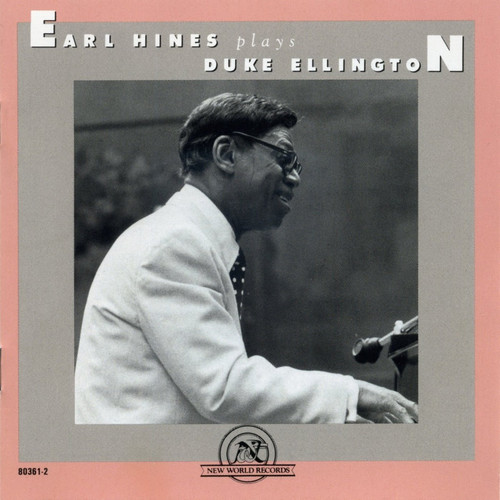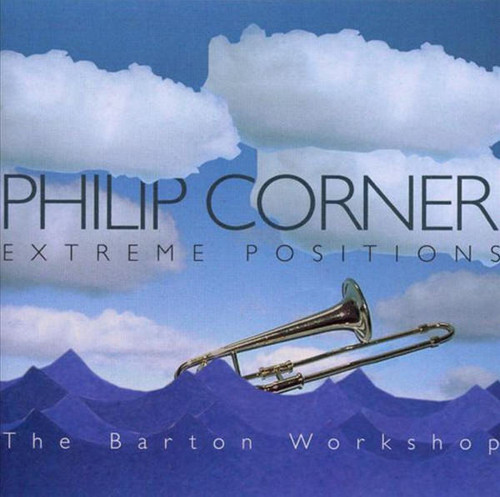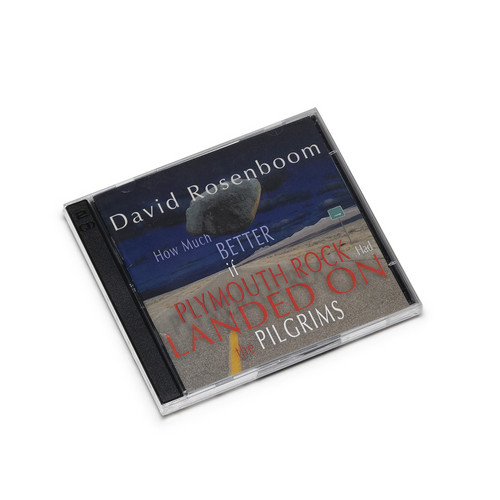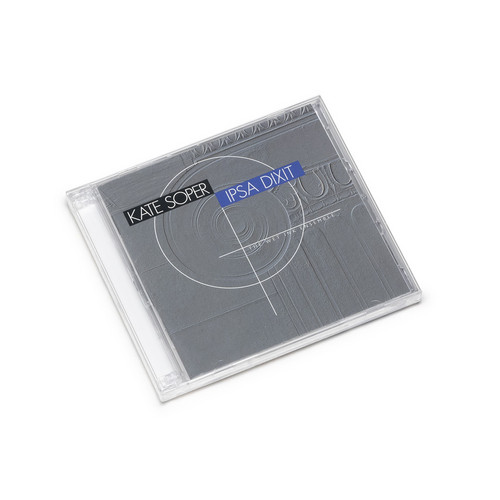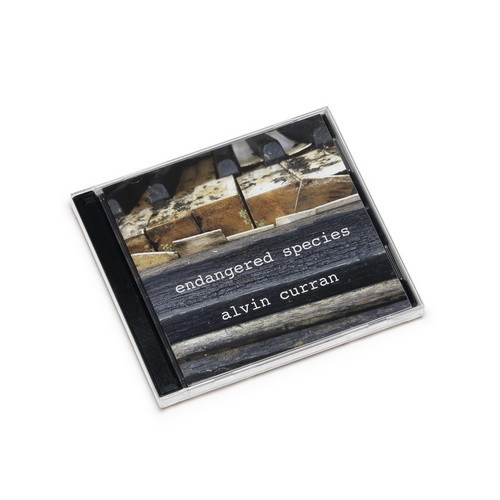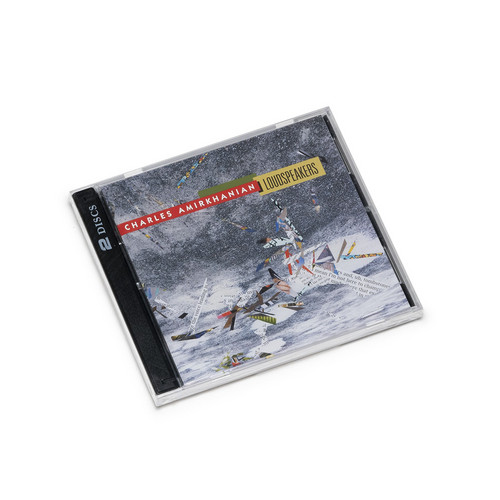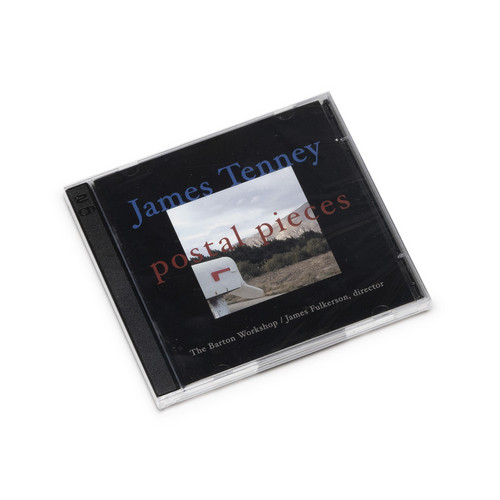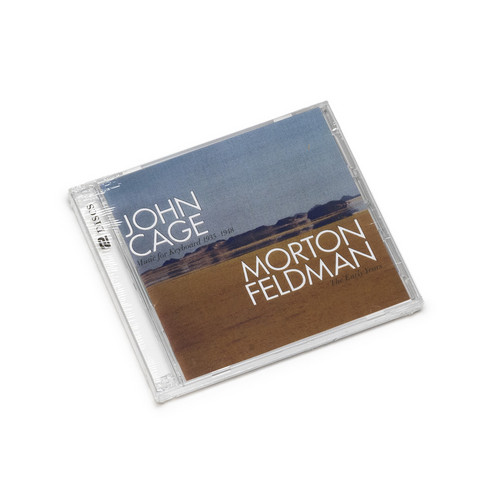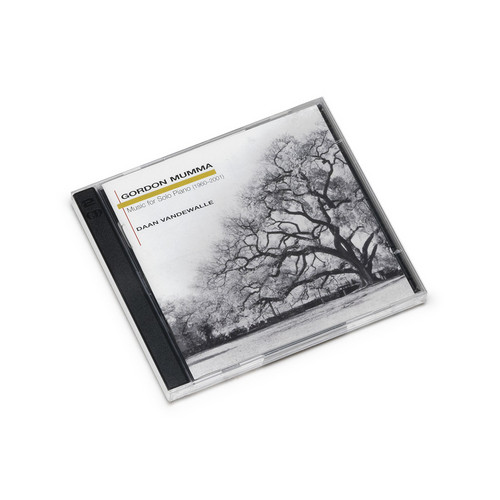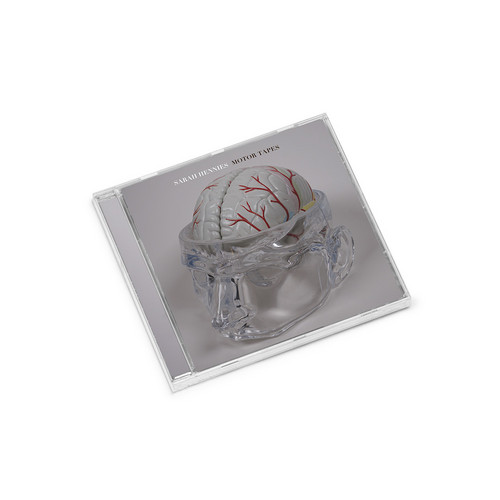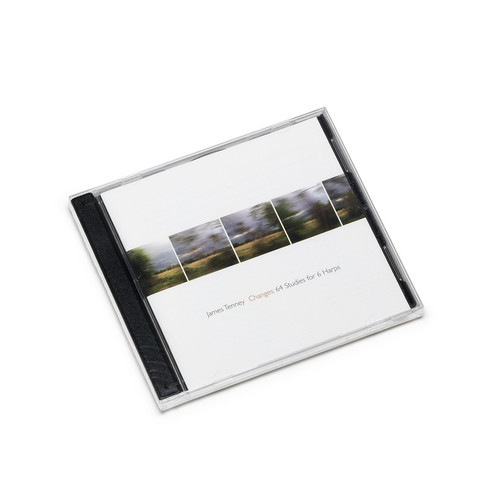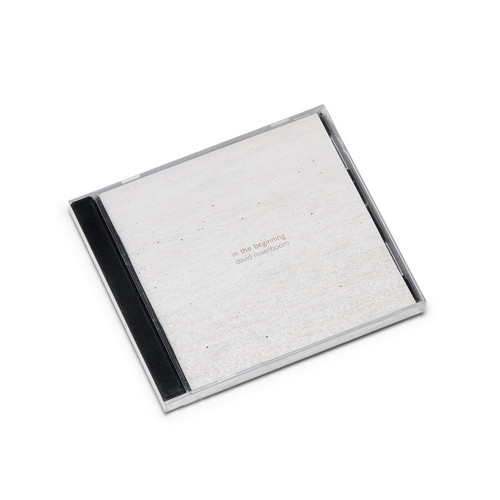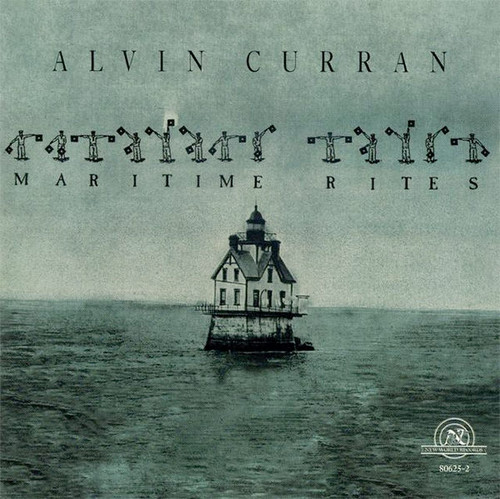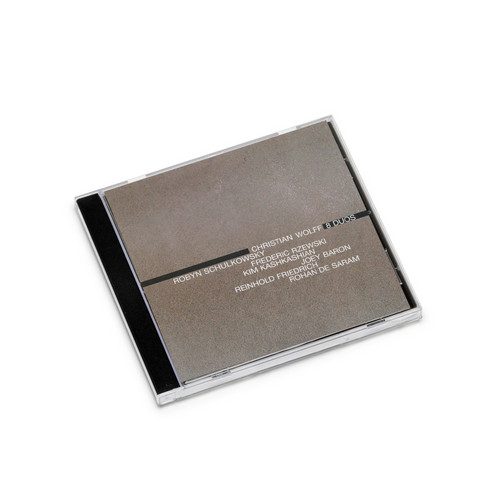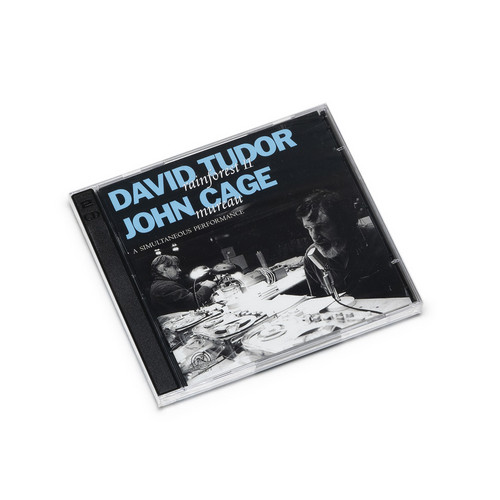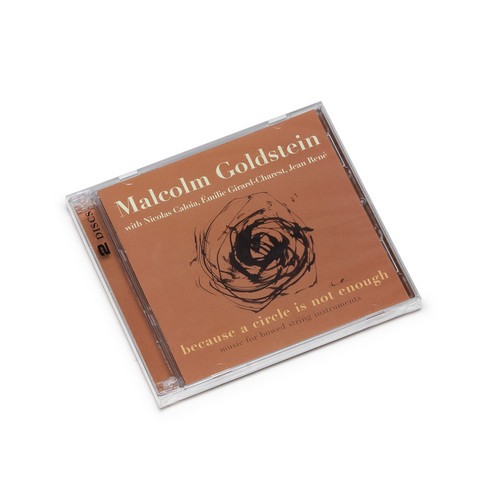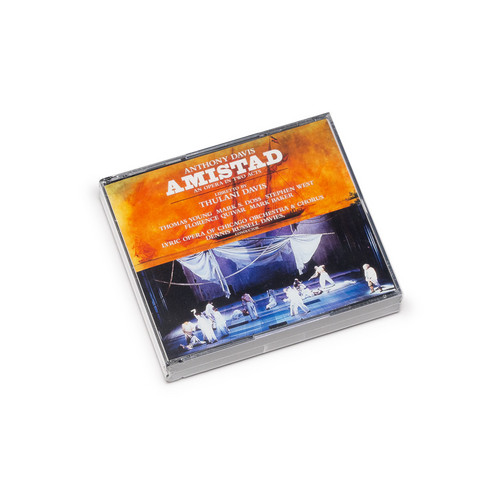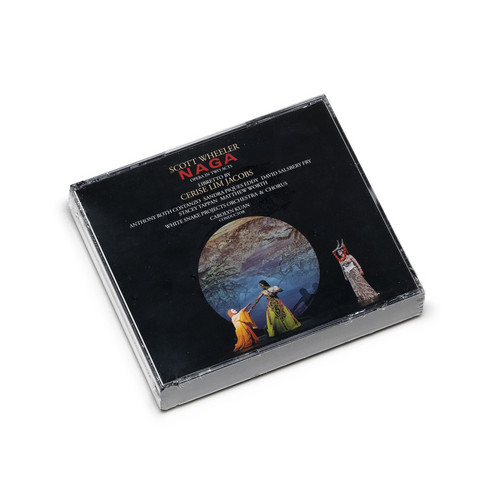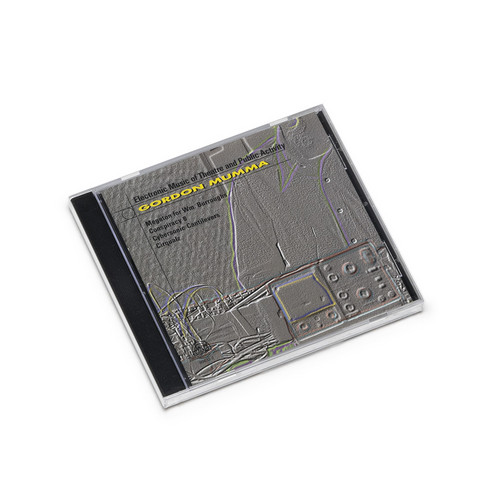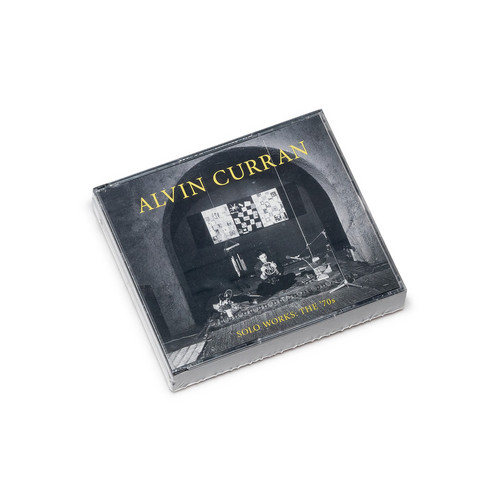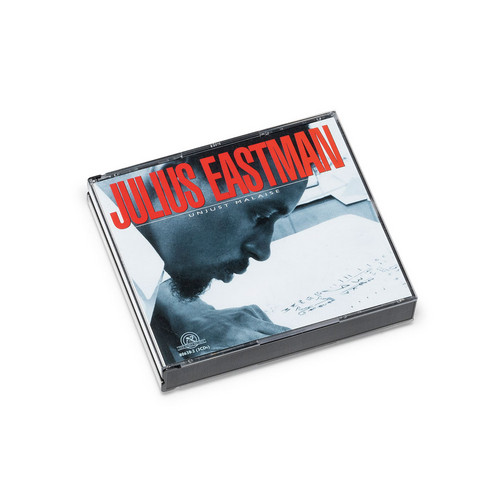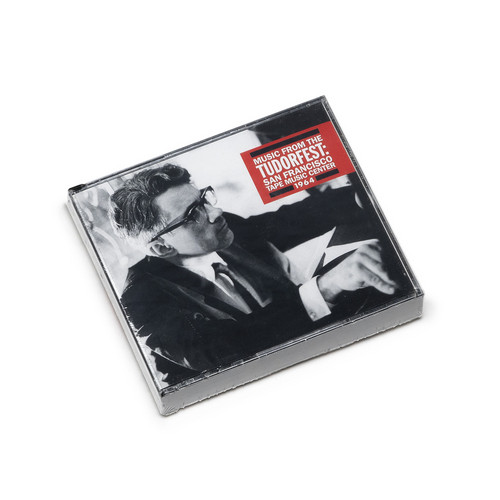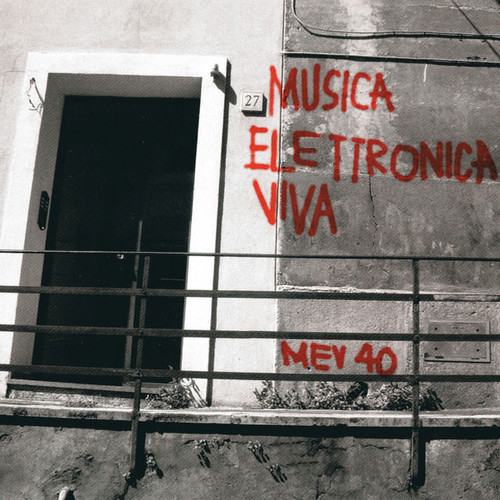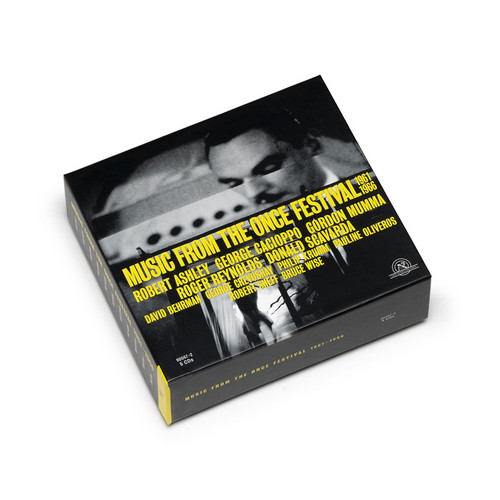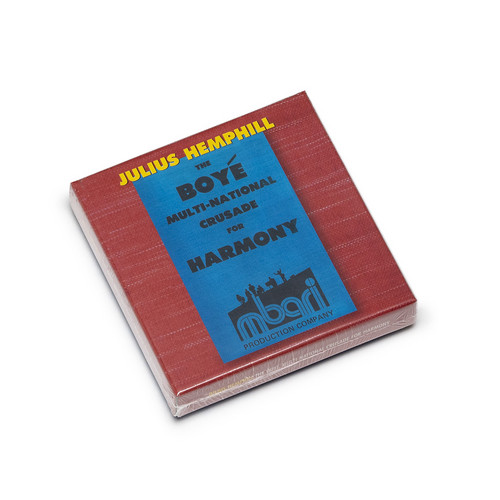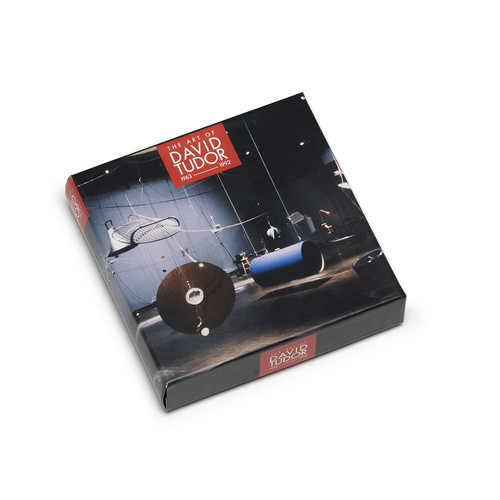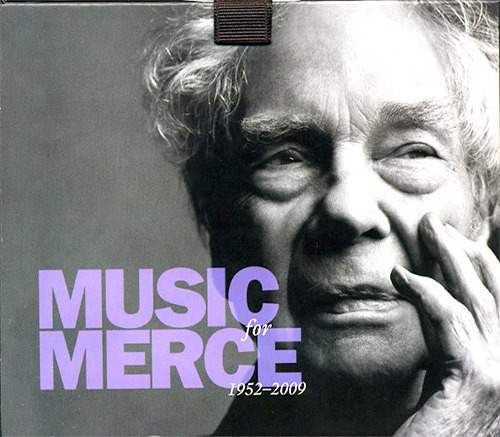Search (1 labels)
Songs Of Earth, Water, Fire And Sky (Music Of The American Indian)
Music of the San Juan Pueblo, Seneca, Northern Arapaho, Northern Plains, Creek, Yurok, Navajo, Cherokee, and Southern Plains Indians
The importance of American Indian music is found not in its impact on modern scholarship and composition but in the traditions and values it expresses to and for the Indian people. This oral tradition has survived solely because the music was too important to be allowed to die. The emphasis in this recording is on musical value: the music of the first Americans ca…
Babes in Arms
This is the first recording of the original score from one of Broadway's gems. “My Funny Valentine”, “The Lady Is A Tramp”, “Johnny One Note”, and “I Wish I Were In Love Again” all came from this show (when was the last time you saw a Broadway show with four hit tunes!), an affectionate and mildly satiric look at a fictional town's adolescent population, abandoned by their parents, who are forced to fend for themselves. More than financial and amorous matters concerned them: These kids wrestled…
Future Travel
Long out of print in its original, 1981 LP version from Street Records, Future Travel, has now been released again, remastered for digital media, by New World Records (80668-2). All the music composed and performed by David Rosenboom from this historic album is included, along with a new version of And Out Come the Night Ears, which was first introduced on an LP from 1750 Arch Records in 1978. One of the first albums composed almost entirely with a digital synthesizer, Future Travel, features th…
Piano plus
Piano Music 1963-1998. Piano Plus is a collection of six piano pieces written by Richard Teitelbaum (b. 1939), a pioneer of interactive electronic and computer music, between 1963 and 1998. Piano Plus illustrates the use of cutting-edge technology to extend the range of the traditional acoustic piano. Three of the pieces are played by the composer himself, and the other three are performed by some of the leading interpreters of contemporary piano music. The first piece, 'Intersections' (1963) is…
A Curving Abacus
In 1968, Steve Reich coined the term Process Music to describe compositional designs that resemble “pulling back a swing, releasing it, and observing it gradually come to rest,” explaining that “once the musical process is set up and loaded it runs by itself.” In the mid-1970s, Brian Eno began using the expression Ambient Music to refer to atmospheric compositions that “must be able to accommodate many levels of listening attention without enforcing one in particular,” music that “must be as ign…
Voiceless Mass
Big Tip! Listening is the foundation of Raven Chacon’s (b. 1977) wide-ranging artistic practice. “I am a listener,” he simply declares, but the attention he gives to sound is complex and vast, encompassing far more than what is immediately audible. From his earliest works, Chacon has been dedicated to amplifying the unheard, calling attention to what is absent or unknown. Although Chacon classifies the compositions on this recording as chamber music, all three of these works “zigzag” through his…
The Music of John Cage and Harry Partch
Superb selection of historical recordings (1947 to 1973) of music by two undisputed masters of the American avant-garde.
And On The Seventh Day Petals Fell In Petaluma
The history of American avant-garde music is a snarled knot, twisting through the decades, spanning genre, practice, and approach. Most narratives plant its origins within the post-war period, orbiting around John Cage, Morton Feldman, and those artists springing from the movements of Fluxus and free-jazz. American creative innovation issued unquestionable influence over the later half of 20th century, but the root of its radicalism was earlier, with its origins often misplaced. Rather growing f…
Wind Shadows
The music on these CDs takes us into a new realm of music making, one that Alvin Lucier has defined for us and one that demands that we start to listen anew. His work has been more often described in terms of science than of art as if it were a series of quasi-scientific experiments, but to put the emphasis here is to miss the point, for its purpose is never “explanatory” (the goal of science) but, like all art, “revelatory.” This is not to suggest that the composer has some spiritual agenda in …
A Portrait
A Milestone, this is it! Selecting illustrative works from the lifetime of a creative person is a daunting task; doing so with a singularly individual artist like Harry Partch is all the more difficult. In the more than four decades since Partch’s death, interest in his both his life and his compositional output has continued to grow, and there remains a place for documents that can offer insights, suggest paths, and give new life to that creator’s endeavors.Even as duplicate instrumental ensemb…
New York City Opera, Erie Mills, David Eisler, John Lankston, Joyce Castle, Scott Reeve, Jack Harrold, James Billings, Maris Clement, New York City Opera Chorus, New York City Opera Orchestra, John Mauceri, Harold Prince, Leonard Bernstein, Hugh Wheeler, Richard Wilbur, Stephen Sondheim, John Latouche
CandideLeonard Bernstein's musical adaptation of Candide started life in 1956 as a musical comedy, became an operetta, was heard several times in concert form, and if not home to roost once and for all in this recorded version, is certainly being cultivated in the place many felt it belonged from the very beginning-the opera house. By the time Candide opened at the Martin Beck Theatre in New York on December 1, 1956, this question was clarified somewhat by changing the billing from "a musical" to "a co…
Earl Hines Plays Duke Ellington
When time pulled the rug from under Earl Hines in 1983, he was still enjoying a comeback that had lasted almost twenty years. That comeback was one of the most important events in recent jazz history and the music included here was recorded when his return to action was in high gear.
The classic quality that Hines maintained throughout his career, and that dominates these interpretations, was a persistent exuberance, a spirit of engagement. Hines was not incapable of meditative melancholy or the…
Antony And Cleopatra
This is the premiere recording of Samuel Barber's Antony & Cleopatra, written for the opening of the new Metropolitan Opera House at Lincoln Center in 1966. Along with Vanessa, it is one of the peaks of Barber's output and one of the great American operas. Though it is rarely staged, this recording allows us to enjoy the fruits of Barber's accomplishment: the glamour of much of the vocal writing, particularly for Cleopatra; the richness, color, variety and imagination of the orchestration; the s…
Extreme Positions
Philip Corner was an active member of Fluxus, a founder of the Tone Roads Chamber Ensemble, the resident musician and composer for the Judson Dance Theatre, and co-founder of Gamelan Son of Lion. The musical opportunities that these ensembles and their performances offered Corner ensured that he was both prolific and had or developed a deep understanding of the important artistic influences of that time. Corner uses a variety of scoring methods. He is truly the equal of John Cage in forcing us t…
How much better if Plymouth rock had landed on the pilgrims
David Rosenboom (b. 1947) has been widely acclaimed as an innovator in American experimental music since the 1960s. Although much of his work has been collaborative, virtually none of his large-scale collaborative works has hitherto been documented on record. How Much Better If Plymouth Rock Had Landed on the Pilgrims (1969-71) is considered to be one of the most important, prompting the following Washington Post review after a 1970 performance: 'If there were a device whereby one could plug int…
Ipsa Dixit
Kate Soper's (b. 1981) Ipsa Dixit (2010 - 16) is an
evening-length work of chamber music theatre for voice, flute, violin,
and percussion that explores music, language, and meaning through
blistering ensemble virtuosity and extended vocal technique. "'Ipsa dixit' is the feminized form of ipse dixit (literally
"he, himself, said it"), a fallacy in which an assertion is made based
not on proof, but on the supposed authority of the speaker alone. The
title seemed apt for a work that explores …
Endangered Species
Endangered Species states, restates, correlates, instigates, inflates and deflates, elevates, formulates, disintegrates, interrogates, percolates, granulates, germinates, Kiss Me Kates, Tom Waits, Norman Bates and W.B. Yeats, horripilates, adumbrates, prestidigitates, sophisticates, enumerates, integrates and contraindicates songs from the standard repertoire, Standards they were called. Old French, Frankish, estendard "place of formation." If you asked a jazz musician what he played, he'd proba…
Loudspeakers
Charles Amirkhanian (b. 1945) can be regarded as a central figure in American music, and on several fronts. As a composer, he's been pervasively innovative in two genres: text-sound pieces, in which he can draw engaging rhythmic processes from wacky word assemblages such as 'rainbow chug bandit' and 'church car rubber baby buggy bumper'; and natural-sound electronic pieces which go far beyond the usual confines of musique concrète to create long, poetic sound narratives poised between collage an…
Postal Pieces
James Tenney is one of the most important American composers and theorists of the past fifty years. For a very long time, his work was known mainly to other musicians and its tremendous influence was belied by its obscurity. In the past twenty years, however, as his music and writings have been more and more published, recorded, performed, and studied, his place in the context of American contemporary music has become far better understood. He has pioneered musical fields as diverse as computer …
Music For Keyboard 1935-1948 / The Early Years
This double-CD set combines two of the key titles of Columbia Records's
legendary "Music of Our Time" series curated by David Behrman. Jeanne
Kirstein's recording of Cage's early keyboard works remains a touchstone
of Cagean interpretation notwithstanding the passage of time. Christian
Wolff recalls, "I remember Cage saying that Jeanne Kirstein's playing
caught the spirit in which the pieces were written at the time he wrote
them-a kind of simple excitement and enthusiasm (also, surely, ou…
Music For Solo Piano (1960-2001)
Performed by Daan Vandewalle, piano. Gordon Mumma (b. 1935) is best known for his pioneering role in the development and evolution of electronic and live-electronic music. The piano has played a significant if underestimated role in his career. With a few notable exceptions, this collection by pianist Daan Vandewalle marks the first commercial recordings of Mumma's music for solo piano composed over more than forty years. It provides an important new perspective on his work as a composer. The sp…
Motor Tapes
Closing the achingly long four years wait since her last full-length, the American composer/percussionist Sarah Hennies returns with “Motor Tapes”, her second release with New World Records. Comprising three astounding new pieces, made in collaboration with three acclaimed ensembles - ensemble 0, Talea Ensemble, and Ensemble Dedalus - that simultaneously encounter her moving into new uncharted territory, while remaining rooted in her singular practice, exploring musical, sociopolitical, and psyc…
Changes: 64 Studies for 6 Harps
James Tenney, for almost the entirety of his career, was one of the great, unsung giants of the American musical avant-garde - an artist’s artist, whose towering contribution and influence was everywhere - equal to Feldman and Cage, but who, like Nancarrow and Partch before him, was a maverick - radical to the core, refusing to play by the rules, and thus suffered at that fate’s all too predictable hand. Since his death in 2006, his legacy in devoted hands, recognition has slowly begun to grow, …
In the Beginning
David Rosenboom (b. 1947) is a composer/performer known as a pioneer in American experimental music. This series of eight works, created between 1978 and 1981 and presented on these discs in chronological order of their composition, demonstrates a remarkable extension of Rosenboom’s techniques from his …Plymouth Rock… series of 1969–71 using the harmonic and sub-harmonic series.
The In the Beginning series exemplifies the idea of model-building as a compositional process. A simple process is def…
Maritime Rites
Featuring the foghorns and other maritime sounds of the U.S. Eastern Seaboard and solo improvisations by John Cage, Joseph Celli, Clark Coolidge, Alvin Curran, Jon Gibson, Malcolm Goldstein, Steve Lacy, George Lewis, Pauline Oliveros, and Leo Smith "In the middle 1970s I began to formulate ideas and projects leading to the making of music outside the concert halls-often in large open and naturally beautiful sites. Ports, rivers, lakes, caves, quarries, fields, and woods, always ready sources of …
8 duos
Born in 1934, Christian Wolff is the last surviving member of the group of composers that also included Morton Feldman and Earle Brown, which gathered around John Cage in New York in the 1950s. Wolff's own music has remained faithful to that Cageian experimental tradition ever since, and the eight works for pairs of instrumentalists here show how, in the right hands, the varying degrees of freedom his works allow their interpreters can produce astonishingly beautiful results. The common denomina…
Spectrum Pieces
James Tenney (1934-2006) was one of the most versatile figures in contemporary American music. Apart from creating a large, wide-ranging, and fascinating body of compositions, more than a hundred of them, he was one of the key music theorists of the late twentieth century. This CD set offers complete recordings of one of the most important of Tenney's later sets of pieces-Spectrum Pieces 1-8, the first five of which were written in Toronto in 1995 and the last three in 2001, after he moved to Va…
Rainforest II / Mureau
This historic release of a simultaneous performance by David Tudor and John Cage of Rainforest II and Mureau, recorded live by Radio Bremen on May 5, 1972, preserves the only surviving performance of the second of Tudor’s "Rainforest" series. In addition, it documents one of the precious few recorded collaborations between these two visionaries. In 1970 Cage composed the piece called Mureau, in which phrases from Thoreau’s journals (in particular, passages which touch on the subject of music) ar…
Because a circle is not enough
music for bowed string instruments consists mostly of music composed by Malcolm Goldstein (b. 1936) between 2018 and 2019 while living in Montréal, Québec. The impulse to compose this series came from Goldstein’s experience as a teacher and performer of Béla Bartók’s 44 Duos for Two Violins (1931). Whereas Bartók’s series features a clear progression to the pieces, gradually increasing in technical and musical complexity from beginning to end, music for bowed string instruments has no such seque…
Amistad
“Amistad is an opera that was ten years in the making. Thulani and I first discussed the idea of making an opera on the Amistad Rebellion in 1986, after the premiere of our opera X: The Life and Times of Malcolm X. We were drawn to the drama of the story, a successful uprising of captives on a slave ship, and the implications of the Amistad incident in an understanding of ourselves and the American experience. Through the Amistad, we could revisit the story of the Middle Passage, the contradicti…
Naga (2 CD Box)
Fairy tale opera has been a challenging genre for composers, with even some of the musically most successful examples, like Humperdinck’s Hansel and Gretel of 1893, more often presented for children than for adults. Scott Wheeler’s (b. 1952) Naga, working from a text that lies between fairy tale and mythology, stands much closer to Mozart’s marvelous exemplar, The Magic Flute, in its musical account of a restless man setting out on a spiritual quest in a world polarized between good and evil for…
Electronic music of theatre and public activity
Gordon Mumma (born 1935) has played a pioneering role in the development and evolution of 'live-electronic' music. 'Live-electronics' as a concept and practice appears to have originated in the United States in the late 1950s, outside the few institutional electronic studios and often in the context of innovative theatre activity. From its inception, it frequently involved two processes: (1) live performance with accompanying or interacting sound materials on magnetic tape; and (2) the use of el…
Solo Works : The '70s
This historic collection gathers together the four seminal solo albums recorded by Alvin Curran (b. 1938) in the 1970s. Two, Fiori Chiari Fiori Oscuri and The Works, are making their first appearance on CD. Author-critic Tim Page, an early advocate of these works, writes, 'Curran weaves electronic technology, an occasional acoustic instrument, voices and musique concrète ('found' music) into a multi-hued tapestry of sound. He holds these dissimilar elements together with a compelling subliminal …
Unjust Malaise
This three-disc set marks the first appearance on disc of the music of the African-American composer Julius Eastman (1940–1990), who died sixteen years ago under unexplained circumstances and whose musical legacy was thought lost. This comprehensive and definitive document, which comprises almost all of Eastman’s signature works, will undoubtedly be a revelation for those who have thus far been unable to hear his work. Eastman was an energizing underground figure, one whose forms are clear, whos…
Music from the Tudorfest: San Francisco Tape Music Center, 1964
In the spring of 1964 Pauline Oliveros organized a festival celebrating the work of pianist David Tudor, which featured compositions by Oliveros, George Brecht, Toshi Ichiyanagi, Alvin Lucier, and John Cage. The Tudorfest was a watershed event in the brief history of the San Francisco Tape Music Center, which not only provided its members with an opportunity to collaborate with Tudor, but also to promote their own work. Co-sponsored by KPFA, the Tudorfest demonstrated the artistic diversi…
Mev 40
Utterly fantastic and indispensable overview on 4 CDs. "Musica Elettronica Viva (MEV) was begun one evening in the spring of 1966 by Allan Bryant, Alvin Curran, Jon Phetteplace, Carol Plantamura, Frederic Rzweski, Richard Teitelbaum and Ivan Vandor in a room in Rome overlooking the Pantheon. MEV’s music right from the start was also totally open, allowing all and everything to come in and seeking in every way to get out beyond the heartless conventions of contemporary music. Taking its cue from …
Music From The Once Festival 1961-1966
With Robert Ashley, George Cacioppo, Gordon Mumma, Roger Reynolds, Donald Scavarda, David Behrman, George Crevoshay, Philip Krumm, Pauline Oliveros, Robert Sheff, Bruce Wise. Ann Arbor, Michigan, seems an unlikely site for the establishment of a major avant-garde festival that would shake the new-music community. Tucked away in America's heartland, the city is equally removed from the Eastern metropolises whose artists pride themselves on sensing the pulse of the times, and from the nonconformis…
The Boyé Multi-National Crusade for Harmony
In response to the arguably self-righteous pronouncements made in the 1990s as to what jazz is and isn’t, Julius Hemphill (1938–1995) spoke up as he had done throughout his career. “Well, you often hear people nowadays talking about the tradition, tradition, tradition. But they have tunnel vision in this tradition. Because tradition in African-American music is wide as all outdoors.” This collection of music, this celebration of artistic collaborations that engaged Julius Hemphill throughout his…
The Art Of David Tudor 1963-1992
Milestone release! David Tudor's (1926-1996) identity morphed seamlessly from interpreter of mainly acoustic music to composer-performer of predominately electronic music over a period of about ten years, from the mid-1950s to the mid-1960s. This set of seven CDs, the first truly comprehensive survey of Tudor's work as a composer, goes beyond any previous attempt to document that process of transformation. It captures his touch and sensitivity and offers an expansive, previously unavailable view…
Music for Merce (1952-2009)
The late Merce Cunningham was renowned for his legendary collaborations with the most significant experimental musicians of the late 20th century. Particularly notable is his association with John Cage, who served as the founding musical director of the Merce Cunningham Dance Company until Cage’s death in 1992. Spanning six decades from the early 1950s onward, these recordings capture the breadth of the Cunningham repertory and the rich diversity of Cunningham’s musical collaborations. Composers…
